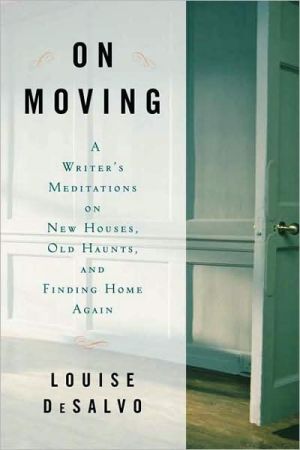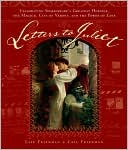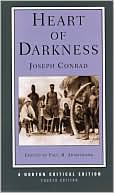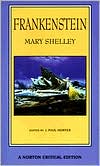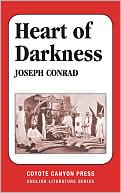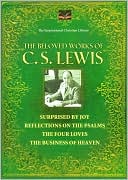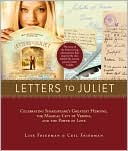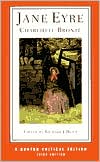On Moving
A literary exploration of one of life’s most taxing, emotional, and pervasive experiences: moving.\ When acclaimed memoirist and scholar Louise DeSalvo sold the house she and her husband had raised their children in and moved to a beautiful new home in Montclair, New Jersey, she was shocked to discover a rash of unexpected emotions interfering with her plans. Suddenly the old, cramped house was paradise, and the new house a barren building with none of the comforts or familiarity of “home.”...
Search in google:
A literary exploration of one of life’s most taxing, emotional, and pervasive experiences: moving. When acclaimed memoirist and scholar Louise DeSalvo sold the house she and her husband had raised their children in and moved to a beautiful new home in Montclair, New Jersey, she was shocked to discover a rash of unexpected emotions interfering with her plans. Suddenly the old, cramped house was paradise, and the new house a barren building with none of the comforts or familiarity of “home.” Faced with a sudden disillusionment over her dream house, DeSalvo turned, as she always has, to her favorite writers. What she found was a treasure trove of material, most of which has seldom been written about before, chronicling the tumultuous and inspiring moves of some of our most beloved literary figures. Percy Shelley, destitute and restless, moved his tired family from one home to another, only to settle in what he came to believe was a haunted house on the Gulf of Spezia (in which he soon drowned). Virginia Woolf, on her hunt for the perfect room of her own, was a real estate hound, and spent years trying to get back to her home in London after a nervous breakdown forced her to relocate to the country. More recently, Mark Doty found selling the house he and his dying lover had spent decades renovating surprisingly freeing as the couple found a new home in which to say goodbye. DeSalvo discovers that the pain, hope, and turmoil involved in moving have been universal for generations. On Moving mines the hopes, disappointments, memories, and fears that come with that simple yet fundamental part of everyone’s lives: moving.The Barnes & Noble ReviewThere can never be enough written on the shocks of moving away from a long-settled home. With the same clean snip in the thread of your identity that ending a romantic relationship can give you, to say nothing of the work of fitting everything you own into small cardboard boxes and watching it all drive away in a truck, moving can be one of the most liberating, terrifying, traumatic passages in a person's life; and one of the hardest to bounce back from. So why isn't moving a bigger subject? There are no sonnet cycles about moving, no epic novel of the real estate market (although the collapse of the subprime mortgage industry could bear some novelistic fruit before too long). When people do write about moving there's always something shy about it, as if writers are embarrassed to care so complexly about something so apparently ordinary.
\ On Moving\ \ A Writer's Meditation on New Houses, Old Haunts, and Finding Home Again \ \ \ \ By Louise DeSalvo \ BLOOMSBURY \ Copyright © 2009 \ \ Louise DeSalvo\ All right reserved.\ \ \ ISBN: 978-1-58234-581-9 \ \ \ \ \ Chapter One "A Balm to Cure All Ills"\ Dream Houses\ A PERFECT PLACE ...\ You're restless, dissatisfied. You tell yourself that everything wrong with your life is because of where you're living. You think, If I move, find another place to live, a better space, everything will change. You believe a new place will change you. You'll spend more time relaxing. Have your friends over for dinner. Practice the piano in the evening instead of collapsing exhausted in front of the TV. You'll read more. Organize your photographs. Meditate. Work out every day. You think that if you move, you'll be nicer to your partner, more attentive to your family.\ In the moves I imagine myself making, I'm always living in a perfect place. A house that doesn't leak during heavy rains. One with no musty smells in the basement. One without walls that crack and need repair. A home without a filthy oven that needs cleaning. A place where there will be no health problems, no marital problems, no financial woes, no income tax, no work that feels banal and boring.\ Throughout my life, as I've walked down one street or another, either in my hometown or in the places I've traveled, I've looked into the windows of houses and imagined myself living there. I imagine the sun shining through these windows in a way that it doesn't in the house I now inhabit. I think about how, in these new places, I will become the self I have not yet managed to be. Thinking like this helps me stop thinking about the problems I face in my work and in my life. If only I could live in this brick house with the lovely side garden, in this clapboard house with the solarium, in this apartment overlooking Central Park, in this whitewashed cottage overlooking the Adriatic, then I could do what I haven't yet done: write a historical novel, knit a modular coat combining all the colors of the rainbow, bake a perfect artisan bread, listen to all Beethoven's late quartets, and finally, finally read all the writings of Proust. I never think about the people who currently live there, their joys and sorrows; I never think about what life is like for them or the challenges they face. I never recall I've felt pretty much the same wherever I've lived-the tiny apartment when I was in my twenties or the mock Tudor where I spent thirty-plus years.\ I never consider why I don't accomplish all I desire where I live now or realize that if I lived in this imagined perfect place, I wouldn't do any of these things either, for real life (the demands of keeping house, of work, of family life) would encroach on me here just as in every other place I've lived. And where I am right now is where I must face whatever this dream of moving helps me elide.\ I've lived in seven places, but in my imagination I've lived in far more. In Sicily, I climb up the steep slope of Monte San Giuliano to Erice, an ancient hilltop village. I stay in a splendid hotel at the summit, a former castle. Through its keyhole windows on a clear day you can see the coast, the salt flats at Trapani. When fog settles over the village, everything below disappears. Now this village is the only place in the world.\ As I walk the twisting, narrow medieval streets, the only sound is conversation-cars are banned from the historic village center. How different from my town with the incessant whine of a nearby highway. In my imagination I move here as I've moved to so many places I've visited.\ Here I would live in a tiny stone house overlooking the valley and the sea. It would have a courtyard, a large balcony with a riot of bougainvillea, and a wrought iron table and chairs for outdoor dining. I'd walk to the local market, choose among several varieties of artichokes, which I'd fry Roman style. I'd buy fresh almonds, cherry tomatoes, spring garlic, a bunch of basil with tiny leaves to make Trapanese pesto. The supper would come together easily. I'd linger over a glass of Cerasuolo wine.\ In this place my life would change. It would not be like Buckeroo Bonzai says in The Adventures of Buckeroo Bonzai Across the 8th Dimension, "Wherever you go, there you are." All my daily worries-about my work, my family's health, the degradation of the planet-would vanish. Here I'd never rush; I'd live in the moment. I'd accomplish less but I'd enjoy myself far more. I'd attend medieval festivals, Renaissance music concerts, Easter processions. My daily walks would take me through the village to its massive walls.\ But this fantasy is dangerous because it makes me dissatisfied with my life no matter how satisfying it is.\ There is no place in this fantasy for what living here would really entail. The loss of privacy, a life lived under constant scrutiny, the conformity of behavior, the gossiping neighbors gathered outside the fruitteria commenting on your every move. The difficulty of carrying provisions up steep cobblestones slicked by mist. The lack of a good bookstore, a community of English speakers, a place to work.\ THE PERFECT HOUSE ...\ In 1923, Virginia Woolf is living at Hogarth House in Richmond, a suburb of London. She writes a diary entry. She's restive, she doesn't know why. She wants to write differently, read more, have meaningful conversations. All this will be possible, she writes, if she finds "a perfect house"; there she'll "arrive at some conception of the meaning of all things."\ Whenever Woolf feels dissatisfied with her work, her psyche, her personal relationships, she imagines herself living in a better place. She knows this. Still, she believes that in this new place everything in her personal life will work itself out, everything perplexing in her writing will resolve itself. Now she wants to live where she can engage in philosophical inquiry, probe the meaning of life beyond appearances. She can't imagine doing this living in suburban Richmond.\ Woolf calls her compulsion to move "this ancient carrot before me," a trait she possessed from childhood. She understood its origins, knew it persisted because she'd believed if only she could escape her parents' home in Hyde Park Gate, with its Victorian strictures on her behavior, her life would be freer, happier, more meaningful. Though she adored her parents, she wanted to escape the tyrannical ways of her father, Sir Leslie Stephen. And she had also been sexually abused there by her half-brothers Gerald and George Duckworth. She knew the only way to escape their incestuous attentions was to live elsewhere.\ Early, she began to call the house in Hyde Park Gate a cage where she was kept locked inside with dangerous beasts. To Woolf, "home" meant a place where you were controlled and abused, a place you had to flee. So she began to imagine a home without constraint or mistreatment where life could be safe, unfettered, and free.\ She imagined an idyllic place "without one yelp or discord" where peace, freedom, joy, and sensuality reigned. A place where she could be powerful, realize her ambitions, put her needs before a man's. A "jocund world" with a tranquil garden where she could hear "the kiss of the air or the chatter of insects." This was the dream house Woolf searched for-and found-during adulthood.\ When she married Leonard Woolf in 1912, though theirs was a complicated marriage, all their households met her stringent requirements for the ideal home where she could be free to do creative work. Imagining such a place when she young was the prelude to her lifelong quest to live in a safe space. This first happened after her father died, when her sister Vanessa made a home away from the Duckworth brothers in a flat in London's Bloomsbury. There Virginia recovered from a breakdown and published her first work.\ Woolf believed that moving was a positive experience. Through the years she'd learned that a change of scene energized her, helped her change direction in her work. She wasn't afraid to throw over a settled life, move from one comfortable place to another that captured her fancy, undertake the risks moving entailed.\ Dreaming of perfect places, looking for new houses, moving into them, and refurbishing them became her lifelong habit. Moving was integral to Woolf's creative life, inextricably linked to innovations in each successive novel. A change of scene for her always lead to a shift in aesthetic vision, a transformation of literary form.\ Woolf said she made "a fetish" of houses. Looking for a dream house was "a source of great pleasure." Her husband, Leonard, though he sometimes complained about his wife's peripatetic nature, also believed moving was beneficial. His remedy for depression was to "move house, develop a new hobby, work with your bands, buy a puppy." He'd moved their household from London to Richmond when Woolf was depressed, believing that moving to the suburbs would cure her.\ Moving to Richmond helped Woolf recover, in spite of bombardments during World War I. Still, she missed London terribly and continued to dream about moving back. "Richmond is certainly the place to live," she wrote ironically, "partly because then London becomes so full of romance."\ While in Richmond the Woolfs bought a printing press and began the Hogarth Press, permitting Woolf the freedom to write with certainty of publication and without editorial intervention. There she wrote her first experimental works: "An Unwritten Novel," "Kew Gardens," "The Mark on the Wall," and the novel Jacob's Room, in which she said she'd found the way "to say something in my own voice." There Woolf developed her portrait of Jacob Archer, who dies during World War I, through the impressions of other characters, an unconventional device.\ In 1919, Woolf is visiting Lewes, Sussex. On a whim she asks about available houses and learns there is one, the Round House, newly on the market. It's small, old. "I pricked up my ears," she writes. Woolf finds out where it is and goes to see it.\ It's at the top of a rise in the town center. And it's a very strange round house. Woolf is excited, for this is no ordinary house; it's just the kind of eccentric house she's always desired. She can already imagine the pathbreaking books she'll write there.\ The elderly owner of the house lets her in. She sees "small rooms, & the view, & the ancient walls, & the wide sitting room, & the general oddity & character of the whole place." She feels something akin to sexual arousal: "I went from one grade to another of desire," she writes, "til I felt physically hot & ardent, ready to surmount all obstacles."\ She buys Round House on the spot.\ But when Virginia brings Leonard to inspect Round House as owners, they realize the house is unsuitable, that Virginia's passion has overcome reason. It's dark; the bedrooms are small; it isn't secluded; there's no space for Leonard's country garden.\ They're unsettled by Virginia's mistake but learn there's an isolated property standing on three quarters of an acre for sale in a tiny nearby village called Rodmell facing the Sussex South Downs. Imagining its advantages, the Woolfs conclude, it "suited ... exactly."\ Virginia bicycles over to the property, called Monk's House. Wanting to spare Leonard another disappointment, she tells herself this time she'll be rational, she'll "keep excitement at bay." Once there, though, she succumbs to the beauty of the garden, the orchard, the house's insularity. She imagines pensive walks among flowering trees, rambles among the Telscombe downs in fine weather. The view across water meadows is exquisite; she sees herself gazing at them as she writes books.\ Monk's House, she thinks, will be "a refuge in cold & storm." She knows her life will change here, that she will have "spaces of leisure." She decides they'll have to sell Round House and buy Monk's House. Immediately.\ When she meets with Leonard to tell him about Monk's House, she describes the garden full of "cabbages and roses." He imagines tending it, building fishponds, caring for the orchard's cherry, plum, pear, and fig trees. He agrees that, yes, this is the ideal country house.\ The Woolfs sell Round House for forty pounds more than they paid and buy Monk's House. Virginia thinks if they'd held on to Round House longer, they could've made even more. She regrets the loss of funds but thrills at the prospect of life in her new home.\ In their eagerness, the Woolfs overlooked many of Monk's House's flaws. Refurbishing it became as important a work in progress as Woolf's novels, and she approached the changes with the same rigor as her revisions. They remedied the house's defects-inadequate drainage causing floods in the kitchen, an antiquated kitchen, no earth closet-by installing gutters, a drainage system, and a new kitchen. Leonard, the most intellectual of men, built the earth closet himself.\ They undertook projects enhancing the house's charm and Woolf often used her earnings from writing to pay for them. They built a garden room fashioned from the tool shed, a bedroom addition with a skylight so Woolf could stargaze, a writing studio in the garden overlooking the water meadows and the downs.\ Woolf furnished her studio sparely with a simple desk positioned facing the view and all easy chair where she penned her early drafts. Outdoors, for fine days, were lounge chairs. It was the writing room she'd dreamed of since childhood. "I long for a large room to myself," she'd written in 1904, "where I can shut myself up and see no one, and read myself into peace." At Monk's House, Woolf found the solitude necessary to unravel the conundrums in her work; it became the setting of Between the Acts, the novel she was writing when she died.\ Even after Virginia was happily settled in Monk's House, she still searched for other houses. "There's nothing I enjoy more than looking for houses," she wrote, "and imagining that I am going to find the very thing.... You know my passion for sensation." When she heard a neighbor might build a house overlooking their garden, encroaching on their privacy, she looked at a farm for sale in the meadows. The neighbor's house was never built, and Monk's House remained the Woolfs' country home until she died.\ When Woolf thought about why she always searched for houses to buy, she noted her restlessness was aroused on the anniversaries of her mother's death. Each year she remembered and sometimes relived that horrifying time when she became a motherless girl of thirteen. It was, she wrote, "the greatest disaster that could have happened."\ After her mother's death, Virginia's father, Sir Leslie Stephen, became morbidly depressed, distant, and withdrawn. Stella Duckworth, Woolf's half-sister and surrogate mother, cared for him, leaving no one to help thirteen-year-old Virginia with her grief. All the joy in her life vanished and whatever protection her mother had provided against her half-brothers' incestuous behavior ceased. As an adult, Woolf knew she dreamed of moving to distract her attention from painful memories, as if the perfect house would erase them and undo the grief and abuse she suffered in childhood. When she thought about moving, she stopped dwelling on the past. "It's odd," she wrote, "how entirely this house question absorbs one."\ FORGING AHEAD, TURNING BACK THE CLOCK ...\ In 1923, Woolf decides that even though Leonard doesn't want to leave Richmond, she will look for a house in London. Leonard believes Woolf's continuing sanity depends on the relative quiet of suburban life. He believes the excitement of London contributed to Woolf's breakdown before they moved to Richmond. He's afraid her sanity will be compromised if they move back to the melee of city life.\ Woolf argues that she's well enough to move to London and that it will be a propitious change for her and for her work. She knows she'll have to prove this to her skeptical husband, especially because he's happier in Richmond than she is; he's more reclusive, less social.\ She thinks about the best arguments she can make to persuade Leonard, writes them in her diary so she won't forget them. She'll argue that she's agreed to stay in Richmond to please him for years; she's wanted to move since 1920. She'll tell him that living in the suburbs has dulled them, made them settled and complacent. In London, they were tastemakers, key members of the Bloomsbury Group, making a profound impact on British culture. If they stay in Richmond any longer, they'll be less likely to move and will become even more stodgy. "Life settles round one," she writes. "Merely to think of a change lets in the air. Youth is a matter of forging ahead." Just imagining this move makes her feel "ten years younger." No one visits them in Richmond, and she feels isolated and lonely; if she wants to see her friends, she has to travel, incurring stress, losing precious writing lime.\ She's forty-one, feeling "middle aged," no longer vital. She's afraid of a dull, conservative, vapid future for them in Richmond. She feels as caged living in Richmond as she had living in Hyde Park Gate: "I'm lied, imprisoned, inhibited" here," she writes.\ (Continues...)\ \ \ \ \ \ Excerpted from On Moving by Louise DeSalvo Copyright © 2009 by Louise DeSalvo. Excerpted by permission.\ All rights reserved. No part of this excerpt may be reproduced or reprinted without permission in writing from the publisher.\ Excerpts are provided by Dial-A-Book Inc. solely for the personal use of visitors to this web site.\ \
Contents Introduction....................11 "A Balm to Cure All Ills": Dream Houses....................112 "A New and Better Way of Life": House Hunting....................353 "A Home, Dismantled": Packing Up....................574 "Adrift": Life After Moving....................715 "A Space for the Psyche's Hinterland": Homemaking....................876 "Displaced": Exiles, Refugees, Wanderers....................1077 "A Door Opening": Changing Lives....................1438 Moving On....................175Afterword....................201Acknowledgments....................215Notes on the Sources....................217
